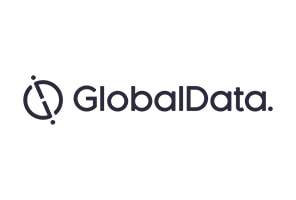At the European Society for Medical Oncology (ESMO) 2017 Congress in Madrid, Spain, Array BioPharma disclosed updated findings from the second part of the pivotal Phase III COLUMBUS trial. This study is assessing the combination of BRAF inhibitor encorafenib (300mg once daily) and MEK inhibitor binimetinib (45mg twice daily) (referred to as “COMBO300”) in patients with BRAF-positive advanced melanoma that are treatment naïve or who have progressed on or after prior first line immunotherapy for advanced melanoma.
The full COLUMBUS trial included 921 patients with advanced BRAF V600 mutation-positive melanoma. In part one, 577 patients were randomised to 1:1:1 to receive 450mg encorafenib + 45mg binimetinib, 300mg encorafenib alone, or 960mg of Roche’s BRAF inhibitor Zelboraf (vemurafenib). In part two, 344 patients were randomised to 3:1 to receive 300mg encorafenib + 45mg binimetinib or 300mg encorafenib alone. Part 2 is designed to evaluate the contribution that binimetinib has on the combination by comparing a lower dose of encorafenib (300mg daily) + binimetinib to single-agent encorafenib (300mg daily).
COMBO300 impressively held off disease progression for a median progression free survival (PFS) of 12.9 months, compared with 7.4 months with encorafenib (HR, 0.67; 95% CI, 0.41-0.78; P <.001). The objective response rate (ORR) was 66% with COMBO300 versus an ORR of 50% with encorafenib monotherapy. In addition, the complete response rate was 8% with COMBO300, whereas encorafenib monotherapy achieved 3%. The secondary endpoint of overall survival (OS) is yet to be disclosed.
In terms of safety, COMBO300 was better tolerated than 300mg encorafenib, giving rise to fewer Grade 3/4 adverse events and fewer adverse events leading to discontinuation.
It was also indicated that the combination has characteristics that could serve as differentiating factors to already marketed BRAF/MEK combinations. Encorafenib has a unique pharmacological profile that exhibited longer dissociation time than other BRAF inhibitors currently on the market. Binimetinib showed a shorter half-life than other MEK inhibitors, allowing quicker resolution of toxicity following dose interruptions. The combination also has a favourable toxicity profile, exhibiting low rates of photosensitivity and fever, which are among the most disconcerting adverse events in the treatment of advanced melanoma with BRAF/MEK combinations.
The combination could carve space in the melanoma treatment landscape, despite its third-to-market status. Encorafenib + binimetinib will reach the increasingly competitive BRAF V600 mutation-positive market, with Novartis’s and Roche’s BRAF + MEK combinations already launched (Tafinlar [dabrafenib] + Mekinist [trametinib] and Zelboraf [vemurafenib] + Cotellic [cobimetinib], respectively), constraining its uptake across the markets.

US Tariffs are shifting - will you react or anticipate?
Don’t let policy changes catch you off guard. Stay proactive with real-time data and expert analysis.
By GlobalDataBased on results from the COLUMBUS trial, Array's European development and commercialisation collaborator Pierre Fabre filed the marketing authorisation applications (MAA) for encorafenib + binimetinib with the European Medicines Agency (EMA) in July 2017. In the US, Array filed a new drug application (NDA) for the late-stage novel oncology combination with the US Food and Drug Administration (FDA) at the same time.
On September 12, 2017, the FDA accepted the NDAs for review to support use of the combination for the treatment of patients with BRAF-mutant, advanced melanoma, setting a target action date under the Prescription Drug User Fee Act (PDUFA) of June 30, 2018.
Whether or not the COLUMBUS study is going to be practice-changing remains to be seen. Part of that hinges on OS results that are yet to be provided and are highly anticipated. However, early signals such as the significant improvements in PFS, improved tolerability and unique pharmacological profile, indicate that the doublet has a great chance to stand out from existing regimens in the advanced BRAF V600 mutation-positive space.





